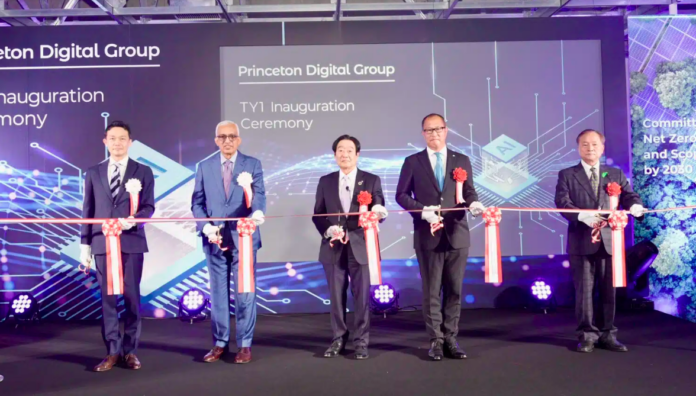
Princeton Digital Group (PDG) has launched its TY1 campus in Saitama City, a US$1-billion next-generation facility with an IT capacity of 96MW.
TY1 is one of Japan’s largest and most advanced data centres, purpose-built for high-performance AI computing.
Located approximately 35 kilometers from central Tokyo, the facility delivers 140 KW per rack of high-density capacity to support AI workloads, among the highest globally.
Japan’s data centre market is experiencing rapid expansion, with Tokyo’s colocation market expected to double from $3.7 billion in 2024 to $7.3 billion by 2030, according to Structure Research.
Hyperscale and AI-related demand is projected to grow from 57% of the overall market to approximately 75% by 2030, with an annual growth rate of over 20%.
These deployments require access to scalable land, reliable power, and robust connectivity, delivered by highly credible data center operators. As existing facilities in central and eastern Tokyo face significant constraints in these areas, Saitama is well positioned due to the availability of power and land, with strong connectivity to existing clusters.
In addition to the advantage of being located in Saitama, PDG’s TY1 also benefits from the company’s successful track record across the region.
“AI has reshaped the data center landscape, driving demand for advanced infrastructure across Asia. Our $1-billion investment in TY1 demonstrates our commitment to Japan as part of our Pan-Asia growth strategy,” said Rangu Salgame, chairman, CEO and co-founder of PDG.
“Saitama offers scalable resources that address constraints faced in traditional hubs,” said Salgame.
This strategic investment leverages Saitama Prefecture’s advantages, including available land, stable power resources, and a well-established fiber optic network.
The facility provides carrier-neutral connectivity to central and eastern Tokyo, Inzai, and key submarine cable landing stations. It features robust seismic resilience that exceeds Japan’s stringent earthquake standards.
Engineered specifically for next-generation AI, TY1 features PUE of less than 1.34 and is equipped with advanced liquid cooling technologies for efficient high-density computing.


AloJapan.com